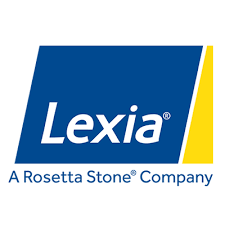Children prefer to read books on paper rather than screens

Margaret Kristin Merga, Murdoch University and Saiyidi Mat Roni, Edith Cowan University
There is a common perception that children are more likely to read if it is on a device such as an iPad or Kindles. But new research shows that this is not necessarily the case.
In a study of children in Year 4 and 6, those who had regular access to devices with eReading capability (such as Kindles, iPads and mobile phones) did not tend to use their devices for reading – and this was the case even when they were daily book readers.
Research also found that the more devices a child had access to, the less they read in general.
It suggests that providing children with eReading devices can actually inhibit their reading, and that paper books are often still preferred by young people.
These findings match previous research which looked at how teenagers prefer to read. This research found that while some students enjoyed reading books on devices, the majority of students with access to these technologies did not use them regularly for this purpose. Importantly, the most avid book readers did not frequently read books on screens.
Why do we think children prefer to read on screens?
There is a popular assumption that young people prefer to read on screens. This was mainly driven by education writer Marc Prensky who in 2001 coined the term “digital natives”. This term characterises young people as having high digital literacy and a uniform preference for screen-based reading.
But young people do not have a uniform set of skills, and the contention that screens are preferred is not backed up by research.
Despite this, the myth has already had an impact on book resourcing decisions at school and public libraries, both in Australia and in the US, with some libraries choosing to remove all paper books in response to a perceived greater preference for eBooks.
But by doing this, libraries are actually limiting young people’s access to their preferred reading mode, which in turn could have a detrimental impact on how often they choose to read.
Young people are gaining increasing access to devices through school-promoted programs, and parents face aggressive marketing to stay abreast of educational technologies at home.
Schools are motivated to increase device use, with Information and Communication Technology being marked as a general capability to be demonstrated across every subject area in the Australian Curriculum.
The drivers toward screen-based recreational book reading are strong, but they are not well-founded.
Why are students more likely to prefer paper books?
Reading on devices through an application leaves more room to be distracted, allowing the user to switch between applications.
For students who already experience difficulty with attention, the immediate rewards of playing a game may easily outweigh the potentially longer-term benefits of reading.
Digital literacy could also be an issue. In order to use a device to read books, children need to know how to use their devices for the purpose of reading books.
They need to know how to access free reading material legally through applications such as Overdrive or websites such as Project Gutenburg.
Tips for encouraging your child to read
Research shows that reading books is a more effective way to both improve and retain literacy skills, as opposed to simply reading other types of text. Yet international research suggests that young people are reading fewer and fewer books.
While equipping children with devices that have eReading capability is unlikely to encourage them to read, there are a number of strategies, supported by research, that can help encourage children to pick up a book. These include:
- Be seen to enjoy reading. This study found that a number of students did not know if their literacy teachers actually liked reading. Teachers who were keen readers inspired some students to read more often and take an interest in a broader range of books.
- Create (and regularly access) reading-friendly spaces at home and at school. Loud noises, poor lighting and numerous distractions will not help provide an enjoyable reading experience, and are likely to lead to frustration.
- Encourage regular silent reading of books at school and at home. Giving children time to read at school not only encourages a routine of reading, but it also may be the only opportunity a child has to read self-selected books for pleasure.
- Teachers and parents should talk about books, sharing ideas and recommendations.
- Continue to encourage your child and students to read for pleasure. While we know that children tend to become disengaged with books over time, in some cases this can be due to withdrawal of encouragement once children can read on their own. This leads children to falsely assume that reading is no longer important for them. Yet reading remains important for both children an adults to build and retain literacy skills.
 Find out what your child enjoys reading, and support their access to books at school and at home.
Find out what your child enjoys reading, and support their access to books at school and at home.
Margaret Kristin Merga, Lecturer and Researcher in Adolescent Literacy, Health Promotion and Education, Murdoch University and Saiyidi Mat Roni, Lecturer, Edith Cowan University
This article was originally published on The Conversation. Read the original article.




